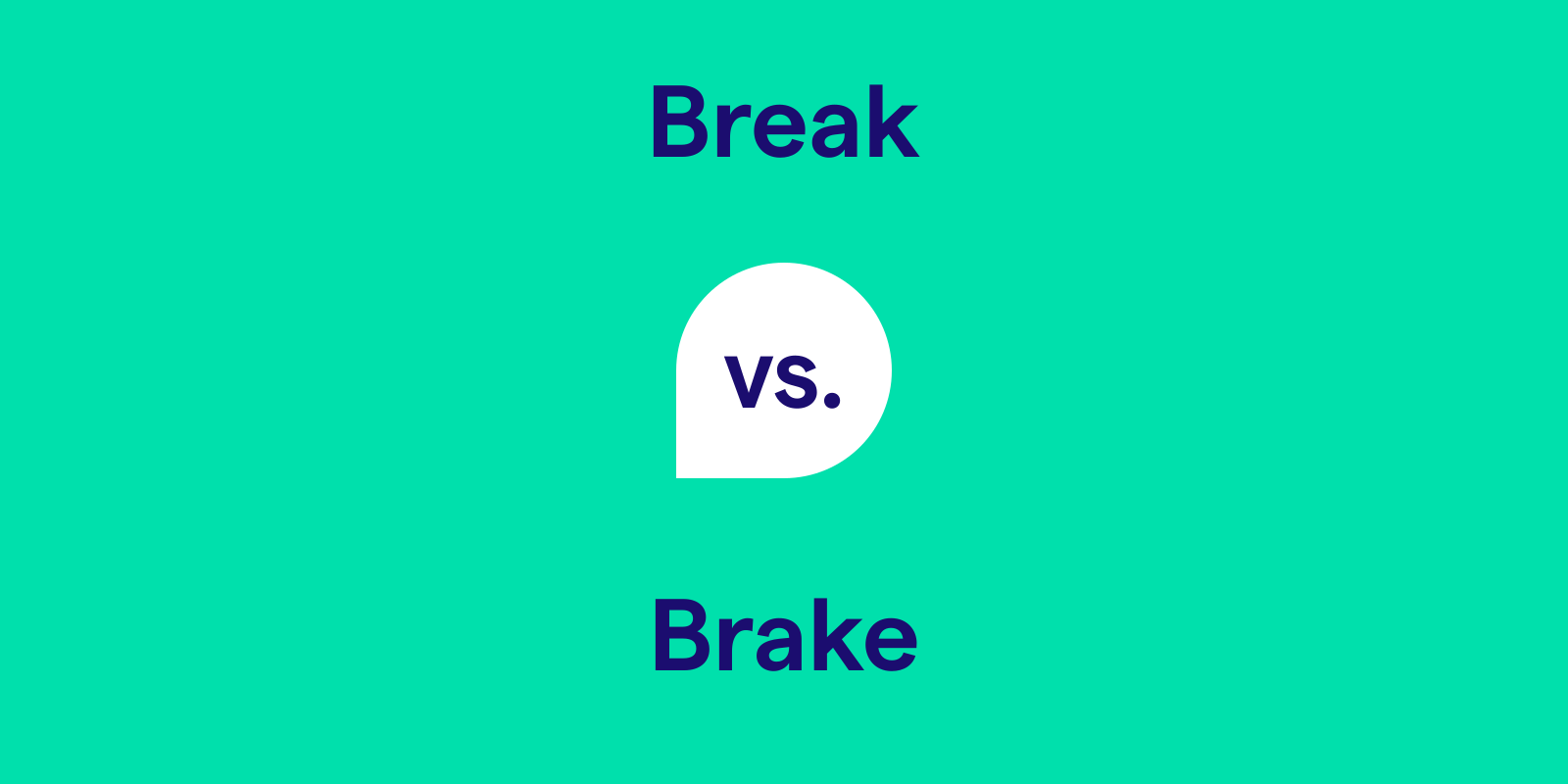Break vs. Brake: What's the Difference?
Understanding the difference between break and brake is essential for clear communication. Break typically refers to the action of causing something to separate into pieces, either intentionally or accidentally, or to interrupt a continuity. On the other hand, brake is a device used to slow or stop a vehicle, or it refers to the act of using this device. While both words sound the same, their meanings and uses are distinct.

How do you use the word break in a sentence?
Break is primarily used as a verb to signify the act of causing something to come apart or to fail in function. It can also refer to a period of rest or interruption in work. The term can further be applied in numerous figurative senses, such as breaking the news or breaking a habit, further demonstrating its versatile use in language.
Examples of break in a sentence
- I accidentally dropped the vase, and it broke into a dozen pieces.
- We decided to take a break after two hours of non-stop driving.
- The news of the scandal broke last night and spread quickly.
How do you use the word brake in a sentence?
The term brake is commonly employed in contexts related to vehicles and machinery, where one needs to reduce speed or come to a halt. It serves as both a noun and a verb, referring to the device itself or the action of utilizing this device. In essence, when commanding someone to slow down a car, you would tell them to 'brake.'
Examples of brake in a sentence
- She pressed the brake pedal hard to avoid hitting the obstacle in the road.
- The mechanic said the squeaking noise was due to worn brake pads.
- When going downhill, it's safer to use engine braking rather than riding the brake.
Break and brake definition, parts of speech, and pronunciation
Break definition:
Break (verb): to separate into parts, often suddenly or forcibly; to cause to cease working; to interrupt a continuity or uniformity. Break (noun): an interruption in continuity; a period of time off from work or activity.
Break parts of speech:
Break pronunciation:
Break is pronounced as /breɪk/.
Brake definition:
Brake (noun): a device for slowing or stopping a moving vehicle or mechanism by the absorption or transfer of the energy of momentum, often by means of friction. Brake (verb): to slow or stop by means of or as if by means of a brake.
Brake parts of speech:
Brake pronunciation:
Brake is pronounced as /breɪk/, identical to 'break'.
Break (verb): to separate into parts, often suddenly or forcibly; to cause to cease working; to interrupt a continuity or uniformity. Break (noun): an interruption in continuity; a period of time off from work or activity.
Break parts of speech:
- As a verb: Don't break the glass by hitting it with hard objects.
- As a noun: After hours of driving, we'll need a break to stretch our legs.
Break pronunciation:
Break is pronounced as /breɪk/.
Brake definition:
Brake (noun): a device for slowing or stopping a moving vehicle or mechanism by the absorption or transfer of the energy of momentum, often by means of friction. Brake (verb): to slow or stop by means of or as if by means of a brake.
Brake parts of speech:
- As a noun: The brake pads must be replaced every 50,000 miles.
- As a verb: You should brake smoothly when approaching a red light.
Brake pronunciation:
Brake is pronounced as /breɪk/, identical to 'break'.
Break vs. Brake in a nutshell
To summarize, break can be a verb meaning to cause to separate into pieces or a noun referring to a period of rest or interruption. Brake, however, can be a noun for a stopping device on a vehicle or a verb for the action of engaging this device to slow down. Despite their similar pronunciation, they are not interchangeable due to their distinct meanings, which are crucial in the context of their use.
Get AI Writing Assistance Wherever You Type
Make sure your vocabulary is on point and every punctuation mark is in the right place, no matter where you’re working. Grammarly works across more than 500,000 websites and apps so you can improve your writing without copying, pasting, or breaking focused.

More Commonly Confused Words
Interest piqued? Pore (not pour) over other commonly confused words to help your writing reach peak (not peek) performance.